Although we have seen many negative impacts come from the restrictions imposed by lockdowns this year, one positive is that it has given people the opportunity to explore and reconnect with nature on their doorstep.
The Dyfrdwy Invasive Species in Penycae and Ruabon Action Group
©NWWT
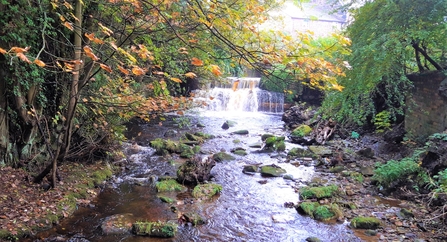
©NWWT
The Afon Eitha flows through the bordering villages of Penycae and Ruabon in Wrexham County Borough Council. The river and its surrounding green spaces has provided a sanctuary for local people, especially in these trying times when our health and wellbeing has become more important than ever.
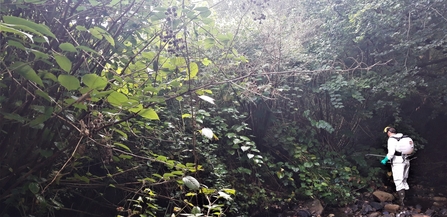
©NWWT
However, the increase in footfall seen in many of our little pockets of paradise will undoubtedly accelerate the spread of invasive non-native species (INNS). Small plant fragments and seeds can easily be transferred by shoes, clothing, pets and equipment. To protect our precious natural spaces for wildlife and people, the Penycae and Ruabon communities are working together to take action against these damaging species.
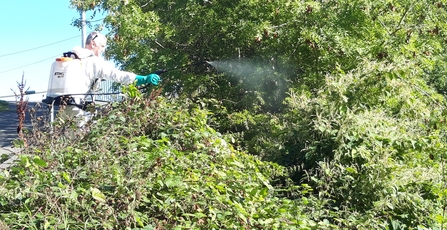
©NWWT
The Dyfrdwy Invasive Species in Penycae and Ruabon Action Group was established in 2018 when members of both Community Councils became concerned about the increasing extent of Japanese knotweed along the banks of the Afon Eitha.
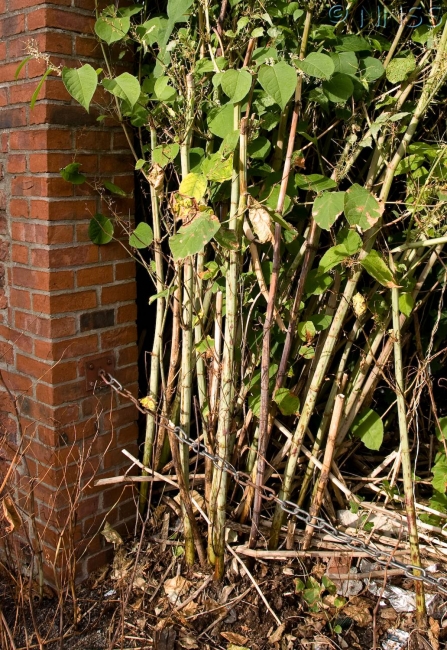
Japanese knotweed can cause damage to infrastructure such as walls and road surfaces © GBINNS
Japanese knotweed is a bamboo-like annual that forms dense stands with extensive roots. It outcompetes native species for space, food and light, and can do a lot of damage to the environment and infrastructure.
Individually each councillor is committed to making a difference; not just in what they do, but in how they can engage all elements of our Community to become environmentally aware and to support health and wellbeing.
The group is working in partnership with the Our River Wellbeing Project who are providing essential training in pesticide usage, ID skills, and biosecurity as well as equipment and PPE.
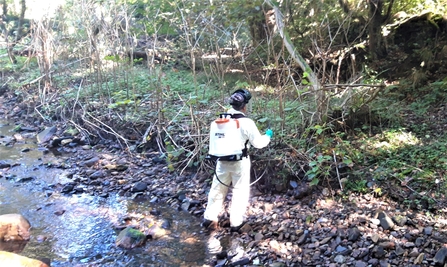
Thanks to the dedicated efforts of the members of Dyfrdwy Invasive Species in Penycae and Ruabon Action Group there has already been a noticeable reduction in Japanese knotweed growth in areas that were previously treated in 2019. The group will continue to record and treat the species annually until its successful eradication.
Want to learn more and get involved? The Our River Well-being Project is always looking for volunteers to assist our dedicated team. We provide a variety of exciting volunteer days out aimed to increase your health and well-being through invasive non-native species management, as well as offering a range of accredited training. For more information, visit:
www.northwaleswildlifetrust.org.uk/our-projects/our-river-wellbeing

